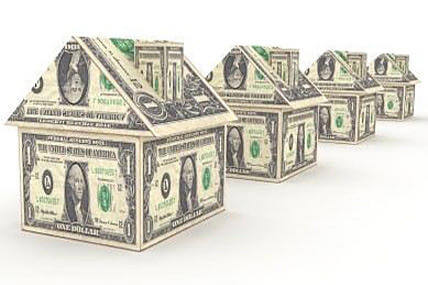If you're like many homeowners, the tumultuous events of the past few years have left you wondering: What's my home worth today?
Surprisingly, that seemingly simple question has more than one answer. "Your home may have three very different price tags depending on who's asking and why they want to know," says Scott Halliwell, a CERTIFIED FINANCIAL PLANNER™ professional at USAA.
Your home's three price tags are based on its market, replacement and property tax values, Halliwell explains.
"Since different values can be used for different reasons, it's important to understand when each applies," Halliwell adds. "Further complicating matters for some homeowners is the fact that these values may be moving in different directions at the same time."
Here's a description of each value and why it's important for you to know each one.
Market Value
This is the most commonly referenced calculation of your home's value. It's the price a buyer would pay for your home in today's housing market, no matter what you paid for it or how much you've added in updates and upgrades.
Why it's important to know
If you're planning to sell your house, market value is what you hope to get for it. "In a buyer's market like we see in a lot of areas today, your home's market value may be lower than you'd like. You might not have as much leverage against a buyer who wants to negotiate, but it's where you need to start," Halliwell explains. An experienced real estate agent can gather information on the selling prices of similar homes in your area, which will help you set reasonable expectations for your home's selling price.
You also should know the market value so you can calculate how much equity you have in your home. Home equity is calculated by subtracting the amount you owe on your home from its market value. Today, most lenders will allow you to borrow up to 70% to 80% of the appraised value of your equity using a home equity line of credit or home equity loan.
Replacement Value
In the event of a total loss, replacement cost helps you rebuild your home based on current construction costs in your area.
Replacement value can include the additional cost of tearing down and hauling away the old structure. Also, homebuilders offer volume discounts that can drive down the price of new homes and may not necessarily reduce replacement costs.
Why it's important to know
Replacement value is the number that insurance companies use to determine the amount of dwelling coverage needed in your homeowners policy. As building costs go up, it's important for your home to be adequately protected with homeowners insurance.
"It's very possible to see local building costs increase while market values decline," says Halliwell. "This can lead to a situation where you actually need more dwelling coverage, despite seeing your home's value drop."
Having one's home damaged or destroyed is a tragic event, but not having enough money to rebuild makes it even worse, Halliwell says.
Property Tax Value
This is the number used by taxing authorities to calculate your property tax bill. A given home may be taxed by more than one property tax jurisdiction -- hospital and school districts, for example -- and each may apply its own math. Typically, property tax values are meant to approximate the market value.
Why it's important to know
The property tax value of your home is going to drive your property tax bill. Sometimes, there's a big discrepancy between the property tax assessment and the market value. Perhaps this is due to the assessment being outdated, which could cause your homeowner's tax bill to be too low or even too high. If the property tax value of a home exceeds the market value, consider contesting the value with your taxing authority to reduce your tax bill. Also, be aware that certain actions, such as remodeling, could cause the property value to be reassessed and result in a larger tax bill in the future.




